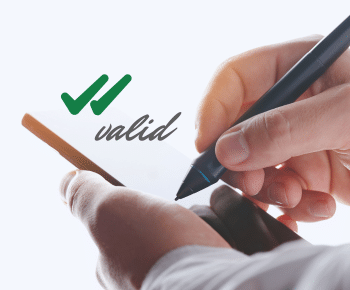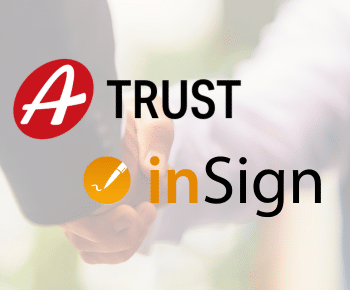
Legal requirements
In today’s world, electronic signatures are becoming more and more important. They allow documents to be signed without physical presence.
But what about the legal recognition of electronic signatures? Are electronic signatures legally valid? This article looks at the legitimacy of electronic signatures and the requirements.
But what about the legal recognition of electronic signatures? Are electronic signatures legally valid? This article looks at the legitimacy of electronic signatures and the requirements.
The legal requirements of electronic signatures vary from country to country and are regulated by specific laws and regulations. In the European Union, the eIDAS regulates the use of electronic signatures. In Switzerland, the law is based on ZertES. In the United States, the ESIGN Act and the UETA are the legal basis.
Relevant regulations & Laws:
eIDAS: Regulation (EU) No 910/2014 of the European Parliament and of the Council on electronic identification and trust services for electronic transactions in the internal market
ZertES: Federal Act on Certification Services in the Field of Electronic Signature and Other Applications of Digital Certificates
ESIGN Act: U.S. Electronic Signatures in Global and National Commerce Act
UETA: Uniform Electronic Transactions Act
ZertES: Federal Act on Certification Services in the Field of Electronic Signature and Other Applications of Digital Certificates
ESIGN Act: U.S. Electronic Signatures in Global and National Commerce Act
UETA: Uniform Electronic Transactions Act
Meaning of legal validity
The terms legal validity and provability are often mistakenly used synonymously, although they actually have different meanings.Legal validity is primarily concerned with the effectiveness of declarations of intent made electronically. Contracts with electronic signatures are in principle legally valid.
Provability, on the other hand, is about proving that the signature is the signature of the person in question. The provability may vary depending on the type of signature. Electronic signatures may not be rejected as evidence in court.
Signature types according to eIDAS
Three signature types are defined in eIDAS: the simple, advanced and qualified electronic signature. All signature types are legally valid, but the provability varies.The simple electronic signature does not have to contain any proof of identity and is therefore barely provable. Even if it is legally valid, it is not relevant for most business processes.
In the case of the advanced electronic signature, the captured data in a signature enables the signature to be assigned to the signatory. This signature form is most frequently used in practice, as it can be easily executed, is legally secure and provable.
The qualified electronic signature requires identification before the signature. This form takes more time and is therefore typically only used for contracts for which written form is required by law. Written form means that the signature must be on paper or by QES.
Tip:
When choosing a signature provider, check which signature types are supported and get advice on which signature type is relevant for your business processes. Many signature providers only support the simple electronic signature, which is not recommended for important business processes because the signature cannot be proven in the event of a dispute.
In some cases, it also makes sense to use multiple signature types within a document. The electronic signature solution inSign supports both advanced and qualified electronic signatures.
In some cases, it also makes sense to use multiple signature types within a document. The electronic signature solution inSign supports both advanced and qualified electronic signatures.
Advantages of electronic signatures
The use of electronic signatures offers numerous advantages. The e-signature makes it possible to sign documents quickly and conveniently without being physically present. This saves time, money and resources. Business processes can be digitalised and the environment can be protected.More advantages
Important aspects in practice
Signature type
Make sure to select the appropriate signature type to suit the importance and type of contract. The more important a document is, the higher the provability should be.Data protection
Check whether the signature provider meets the data protection requirements of the respective country. Personal data may not be transferred to third countries, such as the USA, without the explicit consent of the signatory.Conclusion: electronic signatures are legally valid without restrictions
- The electronic signature is legally valid and may not be rejected in court solely because it was created in digital form.
- In some cases, the signature must meet certain requirements. Requirements are defined in the EU and EEA by eIDAS, in Switzerland by ZertES and in the US by the ESIGN Act and UETA.
- If the law prescribes the written form, a qualified electronic signature is required. In other cases, the advanced electronic signature is recommended, as it can be provided by all contracting parties very easily and without any technical barriers and still brings a high level of proof.
The electronic signature solution inSign is legally valid and provable. Advanced and qualified electronic signatures according to eIDAS and ZertES are supported.
If you have any further questions about the legal validity of electronic signatures, please do not hesitate to contact us.
If you have any further questions about the legal validity of electronic signatures, please do not hesitate to contact us.

About the author
Christina Detling – Online Marketing Specialist
Christina has been working at inSign for over four years and is happy to pass on her knowledge of electronic signatures and digitisation.
- Further articles
More on the topic of digital signatures



